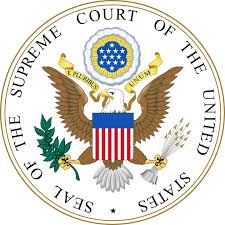A majority of state statutes require nonprofit organizations to register in order to solicit charitable contributions in their jurisdiction, however, many of those laws exempt hospitals, educational institutions, and/or religious organizations from the registration requirement. The scope of the exemption, as well as the manner of obtaining it, varies from state to state. In this article, I provide a summary of the state charitable solicitation registration exemption framework for hospitals, educational institutions and religious organizations, and a brief examination of how organizations exempt from charitable registration may be unexpectedly impacted by newly added provisions to California’s law governing online charitable fundraising activities.
Nonprofit Hospitals
About 15 states exempt nonprofit hospitals from registration. As a general matter, the exemption will apply to a nonprofit, charitable hospital regardless of where the hospital is licensed. However, a number of states limit the hospital exemption to only those hospitals licensed within the state. Additionally, in some states, the exemption is not available to hospitals that engage the services of a professional fundraiser. Hospital foundations are exempt in only three states.
Educational Institutions
About 33 states exempt educational institutions from registration. Many offer a fairly broad scope of exemption that would apply to most colleges or universities accredited by a recognized regional or national accrediting body. However, a number of states limit the exemption to those educational institutions which (a) are operating within the state only; (b) confine their solicitations to alumni, faculty, trustees, or the student membership and their families (meaning that universities that solicit contributions from foundations or corporations to support academic research, athletics, or other programs would not qualify for the exemption); or (c) qualify as a religious organization or are controlled or supervised by a religious organization.
Religious Organizations
Most states exempt or exclude religious organizations from their charitable solicitation registration and reporting requirements. The scope of that exemption varies widely among states, both in how religious organizations are defined and in how those definitions are interpreted and applied. For some, the religious exemption provisions are broadly constructed, and exempt any “duly organized religious corporation, religious institution or religious society,” leaving the organization to determine if it falls within the exemption. Other provisions are more narrowly drafted or applied, exempting only those organizations that are not required to file Form 990 with the IRS. These primarily include churches,1 their integrated auxiliaries,2 and ecclesiastical or denominational organizations. Additionally, the exemption may be further limited to religious organizations that do not use the services of a professional fundraiser.
Generally religious organizations that are required to file Form 990 with the IRS, will be exempt in some, but not all, states. Many of those describe their mission as both religious and charitable, as together these constitute an expression of their religious faith and values. Charitable services may include the provision of food, shelter, education, and medical support to vulnerable populations. Oftentimes, religious organizations incorporate prayer and religious instruction into their programmatic work and require their employees to agree to an organizational statement of faith.
Confirming Exemption from Registration
While a few states have a formal exemption review and approval process which includes submission of exemption forms and supporting documentation, a number of states have no formal process. For these states, organizations may simply submit a letter advising the state of its own determination of exemption.
A number of other states will consider hospitals, educational institutions, and religious organizations exempt based on their own determination, and may or may not require submission of a confirmation letter. It may be prudent, however, for organizations to submit a letter and have it noted in the state’s files even when not required. Doing so may help facilitate discussion with any professional fundraiser, fundraising consultant, or commercial co-venturer engaged by the organization, which must ensure that their charity clients or partners are properly registered or otherwise exempt from registering and may even insist upon receiving evidence of such registration or exemption in order to protect their own compliance obligations. Further, funders and even individual donors may base contribution decisions on an organization’s compliance with registration requirements.
Implications of New California Law Governing Charitable Fundraising Platforms on Hospitals, Educational Institutions, and Religious Organizations
We recently became aware of a number of nonprofit hospitals that were blocked from receiving donations through Facebook and other online fundraising platforms as a result of the platform’s implementation of a new “good standing” requirement which is part of California’s recently enacted law governing charitable solicitation, known as Assembly Bill 488 (AB 488). Online fundraising platforms must block organizations that have a delinquent status with certain state and federal regulatory agencies from receiving donations through their platform. The issue occurred even though the blocked hospitals met the statutory requirements for exemption from registration in California. A charitable organization’s failure to be in good standing in California has implications far beyond that state because platforms will generally block all online donations made to delinquent organizations from donors located anywhere, not just donations made by California residents.
To learn more about California’s new “good standing” requirement, how it affects exempt organizations, and steps your organization can take to avoid or resolve a “good standing” issue, read Has Your Organization Been Blocked by Charitable Fundraising Platforms?
1 The term “church” includes churches, temples, mosques, and other houses of worship.
2 See https://www.irs.gov/charities-non-profits/churches-religious-organizations/integrated-auxiliary-of-a-church-defined.
- Karen l. Wuhttps://perlmanandperlman.com/author/karenwu/
- Karen l. Wuhttps://perlmanandperlman.com/author/karenwu/
- Karen l. Wuhttps://perlmanandperlman.com/author/karenwu/
- Karen l. Wuhttps://perlmanandperlman.com/author/karenwu/











